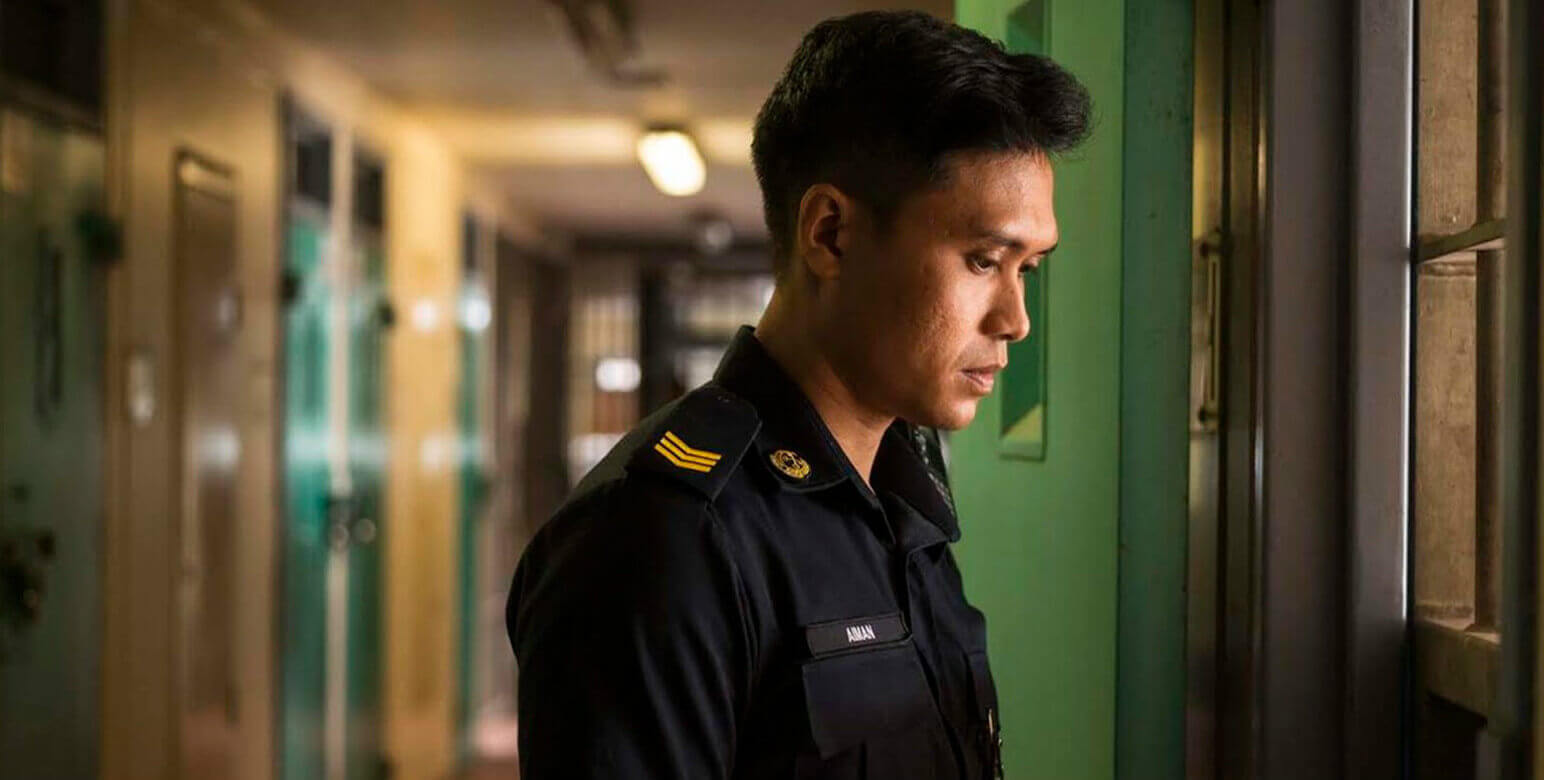Apprentice [2016], Singapore’s official submission for the 2017 Best Foreign Film Oscar, is a skillful prison drama that tackles the topic of capital punishment in a very personal way.
A dreadful fascination. Aiman (Firdaus Rahman), a prison guard in his late twenties, transfers to a new prison and becomes increasingly fascinated with the Chief Executioner and his work. By making himself visible to the right people, he is soon tapped to work alongside the old man. We soon realize that there is an ulterior motive here: Aiman’s sister Suhaila (Mastura Ahmad) begs him to stay out of the Condemned unit, distressed that he is now working at the prison where their criminal father was hanged many years ago. But Aiman, who never met the man, is drawn to the gallows, and in a memorable scene. he even dons the hood used during hangings, forcing himself to the brink of panic, feeling what his father must have felt during that final moment.
What work-life balance? The relationship between Aiman and Chief Rahim (Wan Hanafi Su), the elderly executioner, is at the center of the film. There are not many other characters, but those we get are well fleshed out. We sympathize with Suhaila’s worries for her brother’s well-being but wish the best for her when she gets a chance to distance herself from her own demons. Joseph, another guard whose cold feet in the face of an upcoming execution leads to Aiman’s inadvertent advancement in the unit, is just a guy trying to do a really hard job and live with himself when he goes home at night. The small number of characters makes the world feel a bit unrealistic and small but contributes to Apprentice’s intense emotional focus. The stakes are very personal – it’s not about prisons or society: it’s about Aiman.
Fantastic cinematography. Director Junfeng Boo and cinematographer Benoit Soler took the geometric oppression of the prison and turned it into something beautiful. Every shot is visually interesting and keeps the film feeling dynamic, never boring. There is a pop of a lush green color in almost every shot, appearing on the painted walls and doors, or on the bars of the prison cells, that makes the prison environment feel vibrant and alive in spite of the dreary nature of the place. The green also provides a sense of visual continuity that is abruptly challenged when we finally see the corridor leading to the gallows and the bright red door they lie behind. It is something quite striking.
A challenging but extremely rewarding watch. This very personal look at capital punishment somehow manages to divorce itself from politics entirely. Instead, it becomes a workplace drama about a very difficult job – as Aiman learns the ins and outs of hanging (too little rope and the condemned strangles and suffers – too much rope and things get messy) the viewer, too, gets an education. By the third act, we’re fully invested in Aiman’s choices as he faces the gruesome reality of the job and of what happened to his father. Even the moral issues at hand are split into smaller gestures – when Aiman sits alongside the cell of a condemned prisoner, attempting his own version of Chief Rahim’s placating monologue, he is unable to speak. He might be able to pull the lever, but he isn’t able to lie about it – and this might make all the difference.
Apprentice holds the viewer’s attention at every moment and ultimately lets us make up our own mind about its main character. Some viewers might find this level of effort frustrating, but this bold film certainly won’t leave anyone feeling indifferent.

The Apprentice opens March 3, 2017 in New York at the Village East Cinema
